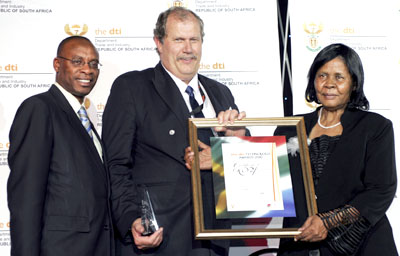Latest News Archive
Please select Category, Year, and then Month to display items
12 October 2020
|
Story Arina Engelbrecht
|
Photo Supplied
 Arina Engelbrecht from Organisational Development and Employee Well-being believes physical activity has a number of benefits for one’s health, including stress relief.
Arina Engelbrecht from Organisational Development and Employee Well-being believes physical activity has a number of benefits for one’s health, including stress relief.
Being physically active plays a big role in preventing the development of mental-health problems and in improving the quality of life of people experiencing mental-health problems.
Treatment for depression
Physical activity can be an alternative treatment for depression. It can be used as a stand-alone treatment or in combination with medication and/or psychological therapy. It promotes all kinds of changes in the brain, including neural growth, reduced inflammation, and new activity patterns are formed that promote feelings of calm and well-being. It releases endorphins – powerful chemicals in the brain that energise your spirit and make you feel good.
Physical activity can be very effective in relieving stress. Research in adults has found that physically active individuals tend to have lower stress levels compared to individuals who are less active. It also leads to improved sleep. When a person sleeps better and feels more rested, overall quality of life improves. They cope better with daily life stressors.
Reduce Alzheimer's risk
Regular physical activity can reduce your risk of developing Alzheimer's disease by up to 50%. It can also slow down further deterioration in those who have already started to develop cognitive problems. It stimulates the brain’s ability to maintain old connections as well as to make new ones.
A study asked people to rate their mood immediately after periods of physical activity (e.g. going for a walk/run, cycling, doing housework) and periods of inactivity (e.g. reading a book or watching television). Researchers found that participants felt more content, more awake, and calmer after being physically active compared to after periods of inactivity.
In conclusion, people who are physically active feel a sense of well-being, feel more energetic throughout the day, sleep better at night, have sharper memories, and feel more relaxed and positive about themselves and their lives.
“Being physically active not only changes your body, it changes your mind,
attitude, and your mood.” – Arina Engelbrecht
UFS Chemistry wins dti award
2010-11-02
 |
|
At the awards ceremony are, from the left: Director-General of Trade and Industry Mr Tshediso Matona, Prof. Andreas Roodt and the Deputy-Minister of Trade and Industry, Ms Bongi Maria Ntuli.
Photo: S Osman
|
The research group of Prof. Andreas Roodt, Head of the Department of Chemistry at the University of the Free State (UFS) in Bloemfontein, won the first prize in the category Development of Small Medium and Micro-Enterprises (SMME) at the annual Department of Trade and Industry’s (dti) award ceremony.
Prof. Roodt received the prize for the high-technology project Development of novel nuclear pharmaceuticals in the Technology and Human Resources for Industry Programme (THRIP).
The Deputy-Minister of Trade and Industry Bongi Maria Ntuli, and Director-General Tshediso Matona presented the prize at the gala dinner held at Gallagher Estate, Gauteng in October 2010.
The dti’s Annual Technology Awards recognise excellence in research and aim to raise awareness on the benefits of using technology to improve the competitiveness of enterprises, within the local and global arena. Individuals and organisations are recognised for their efforts in advancing and promoting technology interests and emerging enterprises.
The technology awards cover the achievements of three of the dti technology programmes collectively, namely THRIP, managed by the National Research Foundation (NRF); the Support Programme for Industrial Innovation (SPII) managed by the Industrial Development Corporation (IDC); and the Small Enterprise Development Agency (seda) Technology Programme (stp).
Prof. Roodt, also vice-president of the European Crystallographic Association, who has just returned from a series of lectures abroad after being elected Fellow of the Royal Society of Chemistry in the UK, has received funding in excess of R3 million over the past two years to set up a specialised laboratory for synthesising active compounds. Key partners in this project are Dr Gerdus Kemp from PETLabs Pharmaceuticals in Pretoria; Prof. Connie Medlen (pharmacologist), recently appointed affiliate professor at UFS Chemistry; as well as Prof. Deon Visser from the Inorganic Chemistry research group at the UFS.
The research aims to produce new nuclear medicinal agents for the early diagnosis of cancer, heart and brain defects, and even HIV/ Aids.
Two doctoral students, Alice Brink and Marietjie Schutte, are currently actively involved in this project. They are the recipients of prestige scholarships introduced by the UFS Rector and Vice-Chancellor, Prof. Jonathan Jansen, under the UFS Research Initiative (the Advanced Biomolecular Systems Cluster) to complete their Ph.D. studies.
Media Release
Issued by: Lacea Loader
Director: Strategic Communication (actg)
Tel: 051 401 2584
Cell: 083 645 2454
E-mail: loaderl@ufs.ac.za
2 November 2010